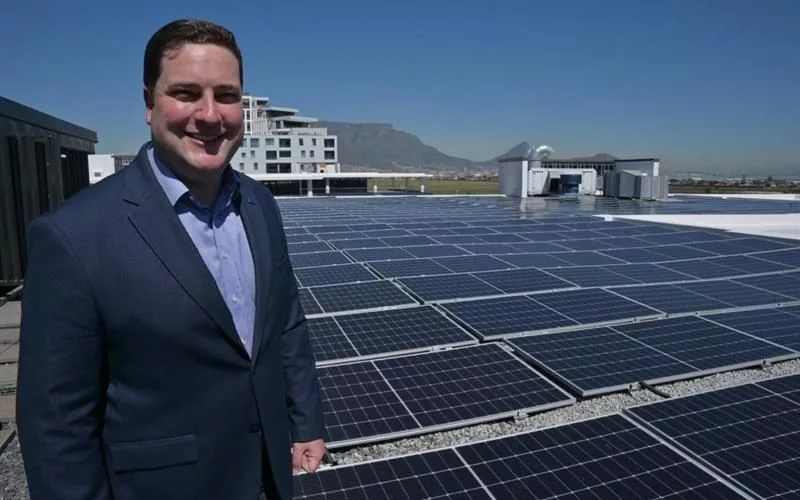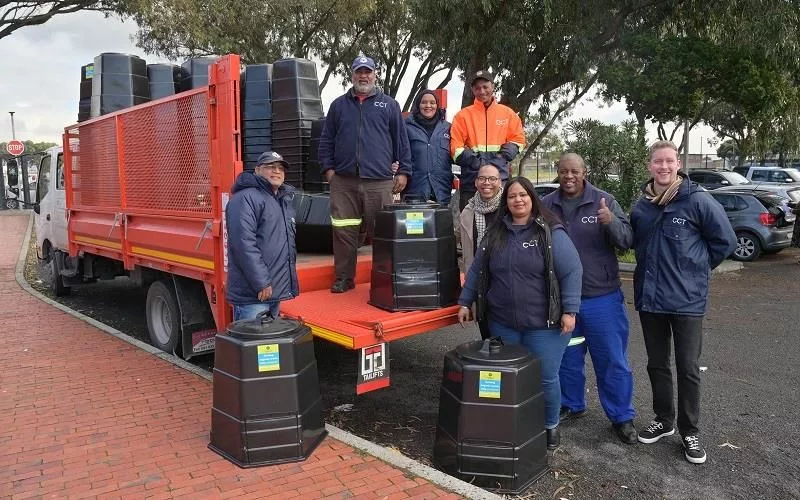Cape Town’s innovative “Cash for Power” program incentivizes solar power generation by buying leftover solar PV power from small-scale producers and providing rewards, making it an attractive opportunity for property owners. The program’s success is evident with over 1,500 power sellers earning over R30.8m. The city’s vision is to acquire as much solar power as households and businesses can generate, promoting sustainable energy solutions and a green economy. The application process has been streamlined with a new online portal and a bi-directional meter is set to be introduced.
Cape Town’s Innovative Initiative: Incentivizing Solar Power Generation
Cape Town’s “Cash for Power” program buys leftover solar PV power from small-scale producers and provides rewards, making it an attractive opportunity for property owners. The program’s success is evident with over 1,500 power sellers earning over R30.8m. The city’s vision is to acquire as much solar power as households and businesses can generate, promoting sustainable energy solutions and a green economy.
Cape Town, a vibrant cosmopolitan city, is leading the way with an innovative project known as “Cash for Power.” For the first time, this bustling city has inducted 432 households into the program, providing them with a unique opportunity to benefit from their surplus solar power production. Uniquely designed for a South African metro, this scheme enables the city to buy leftover solar Photovoltaic (PV) power from small-scale producers. The transaction is effortlessly conducted via municipal bill credits and cash rewards, making it an attractive opportunity for property owners.
The Onboarding Process and Initial Success
In March, Cape Town initiated the first application phase for potential residential sellers. Over four hundred households enthusiastically responded and applied to sell their excess power back to the city. Since June 2023, business entities have also been able to capitalize on their extra power, marking the broadening of the initiative to residential households.
The Cash for Power scheme has already proven successful with Cape Town businesses and households earning over R30.8m, primarily through municipal bill credits. This amount includes R23.5m from the feed-in tariff, supplemented by an additional R7.3m from the City’s initiative, which provides a 25c per kilowatt-hour (kWh) incentive to promote program participation.
Evidence of Success and Future Aspirations
The program’s accomplishment is clearly visible through the 1,537 power sellers that have profited from their surplus power generation. This includes 910 residential and 627 commercial or industrial contributors. The city’s vision for the initiative is to acquire as much solar power as households and businesses can generate, which would not only supplement the city’s power grid but also financially reward the citizens of Cape Town.
Streamlining the Application Process
Launch of a New Online Portal
To facilitate the registration of a solar PV system, a new online portal has been launched. This step further simplifies the process, motivating more citizens to participate in the program. The city has also hinted at the upcoming introduction of a more economical bi-directional meter that will simplify the process of feeding power back into the grid.
Ease of Application for Ambitious Power Sellers
The application process has also been made easier for residential power sellers who anticipate offsetting their municipal bills. Ambitious power sellers can apply to the City to earn cash beyond their automatic municipal bill credits. The City’s Mayoral Committee Member for Energy, Councillor Beverley van Reenen, explained that customers who wish to offset their electricity and rates accounts will automatically be compensated upon the authorization of their grid-tied Small Scale Embedded Generation (SSEG) system with feed-in.
Practical and Sustainable Energy Solutions
Convenient Registration and Rewards Process
Registration for this program can be easily done online through e-Services. The authorization of solar PV systems can be easily applied for. Customers with authorized grid-tied SSEG systems automatically receive credits on their electricity and rates accounts by selling power back to the City. For those interested in exceeding this provision, they can apply for cash incentives for surplus power generation.
Setting a Positive Precedent
This forward-thinking initiative lays a strong foundation, demonstrating a practical model for sustainable energy solutions. It is an excellent demonstration of how a city can harness its citizens’ power to strengthen its power grid, while simultaneously providing an economic incentive for cleaner, sustainable power generation. This move not only addresses the energy crisis, but also promotes the development of a green economy, setting an example for other cities to emulate.
What is Cape Town’s “Cash for Power” program?
Cape Town’s “Cash for Power” program incentivizes solar power generation by buying leftover solar PV power from small-scale producers and providing rewards, making it an attractive opportunity for property owners.
How successful has the program been?
Over 1,500 power sellers, including 910 residential and 627 commercial or industrial contributors, have earned over R30.8m through the program, primarily through municipal bill credits.
What is the city’s vision for the program?
The city’s vision is to acquire as much solar power as households and businesses can generate, promoting sustainable energy solutions and a green economy.
How has the application process been streamlined?
A new online portal has been launched to facilitate the registration of a solar PV system, and a more economical bi-directional meter is set to be introduced.
How can residential power sellers earn cash beyond their automatic municipal bill credits?
Ambitious power sellers can apply to the City to earn cash beyond their automatic municipal bill credits by generating surplus power.
What is the significance of Cape Town’s “Cash for Power” program?
This initiative demonstrates a practical model for sustainable energy solutions, addressing the energy crisis while promoting the development of a green economy, setting an example for other cities to emulate.












